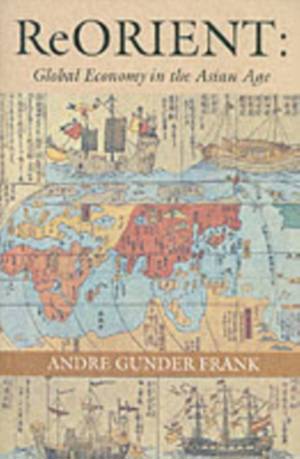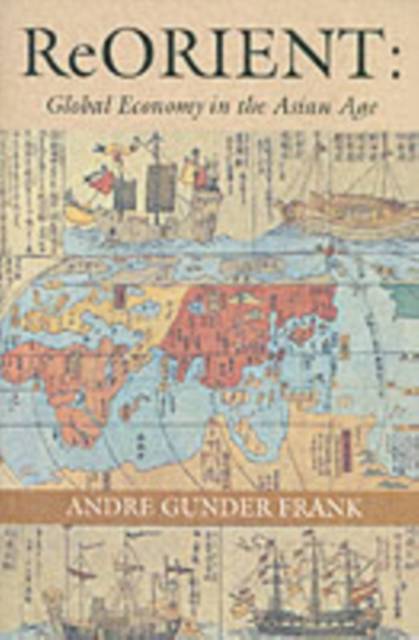
Door een staking bij bpost kan je online bestelling op dit moment iets langer onderweg zijn dan voorzien. Dringend iets nodig? Onze winkels ontvangen jou met open armen!
- Afhalen na 1 uur in een winkel met voorraad
- Gratis thuislevering in België vanaf € 30
- Ruim aanbod met 7 miljoen producten
Door een staking bij bpost kan je online bestelling op dit moment iets langer onderweg zijn dan voorzien. Dringend iets nodig? Onze winkels ontvangen jou met open armen!
- Afhalen na 1 uur in een winkel met voorraad
- Gratis thuislevering in België vanaf € 30
- Ruim aanbod met 7 miljoen producten
Zoeken
Omschrijving
Andre Gunder Frank asks us to ReOrient our views away from Eurocentrism-to see the rise of the West as a mere blip in what was, and is again becoming, an Asia-centered world. In a bold challenge to received historiography and social theory he turns on its head the world according to Marx, Weber, and other theorists, including Polanyi, Rostow, Braudel, and Wallerstein. Frank explains the Rise of the West in world economic and demographic terms that relate it in a single historical sweep to the decline of the East around 1800. European states, he says, used the silver extracted from the American colonies to buy entry into an expanding Asian market that already flourished in the global economy. Resorting to import substitution and export promotion in the world market, they became Newly Industrializing Economies and tipped the global economic balance to the West. That is precisely what East Asia is doing today, Frank points out, to recover its traditional dominance. As a result, the "center" of the world economy is once again moving to the "Middle Kingdom" of China. Anyone interested in Asia, in world systems and world economic and social history, in international relations, and in comparative area studies, will have to take into account Frank's exciting reassessment of our global economic past and future.
Specificaties
Betrokkenen
- Auteur(s):
- Uitgeverij:
Inhoud
- Aantal bladzijden:
- 352
- Taal:
- Engels
Eigenschappen
- Productcode (EAN):
- 9780520214743
- Verschijningsdatum:
- 31/07/1998
- Uitvoering:
- Paperback
- Formaat:
- Trade paperback (VS)
- Afmetingen:
- 152 mm x 226 mm
- Gewicht:
- 580 g

Alleen bij Standaard Boekhandel
+ 115 punten op je klantenkaart van Standaard Boekhandel
Beoordelingen
We publiceren alleen reviews die voldoen aan de voorwaarden voor reviews. Bekijk onze voorwaarden voor reviews.











